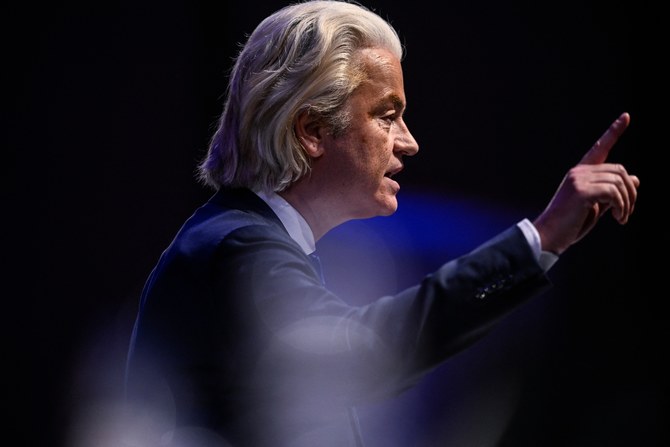
ISLAMABAD: Pakistani counterterrorism officials are concerned about the spillover of Daesh into their country from eastern Afghanistan and will discuss it at a three-day conference from Tuesday.
The National Counter Terrorism Authority (NACTA) is organizing the International Counter Terrorism Forum, which aims to highlight Pakistan’s efforts and achievements in countering terrorism and extremism before the international community. But it will also focus on the possibility of the spillover of Daesh into the country.
Officials and analysts in Pakistan do not rule out the threat of Daesh but insist there is no organized presence of the group in the country.
Dr. Mohammed Shoaib Suddle, former head of the Intelligence Bureau, Pakistan’s premier civilian intelligence agency, argues that elements from the Tehrik-e-Taliban Pakistan (TTP) are now part of Daesh in the region.
“The most radicalized elements within the TTP prefer Daesh. Some others switched loyalties to Daesh as the outfit is richer than other groups,” Suddle told Arab News on Saturday. “They have no organized presence in Pakistan, but they are are scattered,” he said.
Defense expert Said Nazeer Mohmand thinks Daesh has facilitators, abettors and financiers in Pakistan but the group’s “suicide bombers and fighters” come from Afghanistan and carry out attacks in the country.
“Pakistan still faces the threat of Daesh but Afghanistan is the prime location of the group where its fighters get arms and training,” Mohmand, a retired brigadier of the Pakistan Army, told Arab News.
He also pointed to the “suspicions” in Afghanistan about the emergence of Daesh in the country and referred to the statements of former President Hamid Karzai, who a number of times has accused the “US of enabling Daesh presence in Afghanistan.” The US has denied the charges.
“There is a narrative in Afghanistan that Daesh is used against the Taliban, and also to create panic in Central Asian states and also Russia,” Mohmand said. He said the strategic direction of Daesh toward Pakistan is less than to the Central Asian states, and that is why the group’s fighters had been involved in attacks in northern Afghanistan in recent months. He observed Daesh could have up to 3,000 sympathizers in Pakistan in view of their attacks in the country.
Daesh has carried out dozens of attacks in Khyber Pakhtunkhwa and Baluchistan provinces. However, sometimes it has claimed responsibilities in Sindh province as well, for instance when it said it was behind the Sehwan Shrine bombing in February 2017, which had killed nearly 90 people and injured about 300 others.
NACTA Coordinator Ihsan Ghani said Tuesday’s conference is aimed at bringing together leading international and Pakistani experts, scholars, practitioners, think-tanks and opinion-makers in counter-extremism and counter-terrorism.
It will deliberate on the current situation and future challenges and responses, he said, adding that the forum will also engage diplomats, government officials, parliamentarians, politicians, UN agencies, international organizations, the media, civil society and the world community at large.
American and Afghan officials, as well as the Afghan Taliban, believe that mostly Pakistani nationals are part of Daesh in Afghanistan. The Daesh leadership had chosen Hafiz Saeed Khan, the former TTP chief for Pakistan’s Orakzai tribal region, as the first leader for the so-called Khorasan region.
“These IS-K (Islamic State-Khorasan) fighters are primarily Pakistani Pashtun,” said Gen. John Nicholson, commander of the US Forces in Afghanistan. “They have another segment of Islamic Movement Uzbekistan. And then there’s probably 10 percent that’s from a variety of sources around the world,” he said on March 22 in a statement, which also confirmed that the Afghan Special Security Forces and US Special Operators disrupted IS-K’s capacity to use foreign fighters to terrorize the Afghan people in northern Afghanistan.
Nangarhar’s Haska Mena district is thought to be where Daesh emerged, the place where the Afghan Taliban’s Abdul Khaliq, also known as Omar among the circles of the militants, laid the foundation of the group, according to Afghan analyst Najam Burhani, who belongs to the same area. Khaliq, who later enjoyed the support of Pakistani militants from the Khyber agency, had been involved in clashes with the Taliban fighters, Burhani told Arab News.












